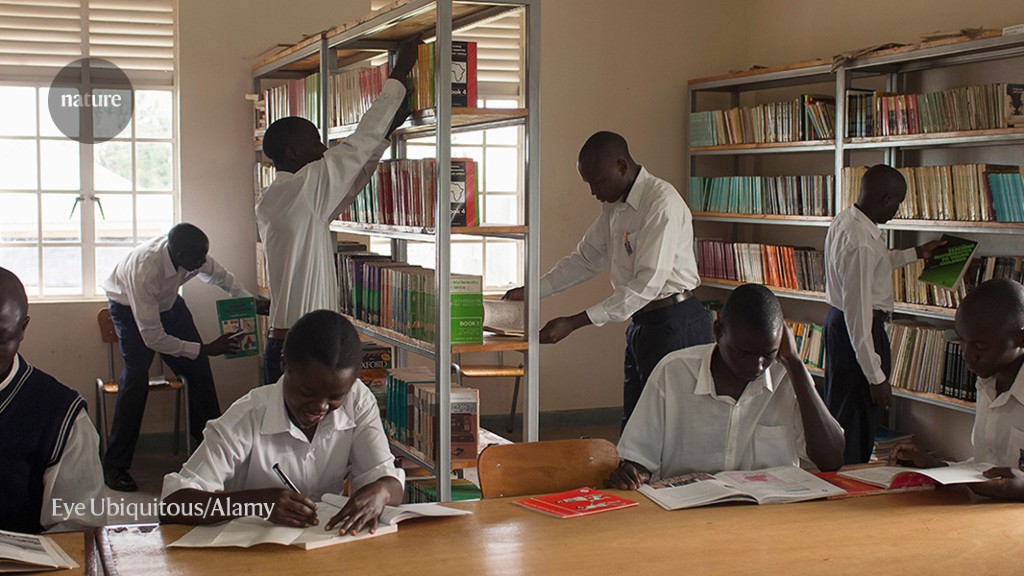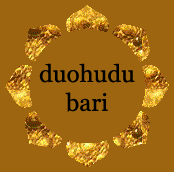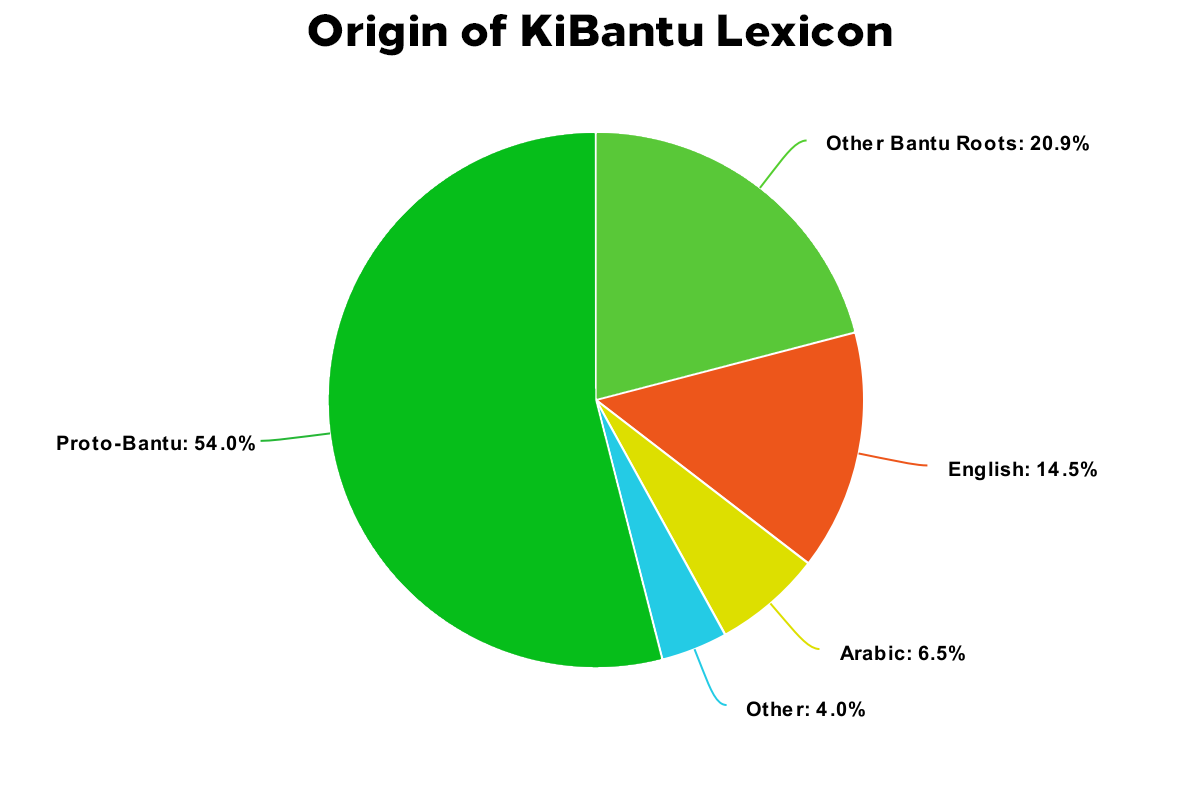Descriptive and Theoretical Approaches to African Linguistics contains a selection of revised and peer-reviewed papers from the 49th Annual Conference on African Linguistics, held at Michigan State University in 2018. The contributions from both students and more senior scholars, based in North America, Africa and other parts of the world, provide a glimpse of the breadth and quality of current research in African linguistics from both descriptive and theoretical perspectives. Fields of interest range from phonetics, phonology, morphology, syntax, semantics to sociolinguistics, historical linguistics, discourse analysis, language documentation, computational linguistics and beyond. The articles reflect both the typological and genetic diversity of languages in Africa and the wide range of research areas covered by presenters at ACAL conferences.
peoplexity 6 months ago • 100%
It is an alphabet, as far as I understand.

Dear friends, You are all invited to join us in this 2024 Guosa Language weekly free classes. It is always an awesome/amazing experience together as we learn ! Date: Sunday Jan. 21st, 2024 Time: Nigeria time 8pm , Los Angeles time 11am Meeting Link : https://meet.google.com/nnm-uezw-ram?pli=1 Let's make it a date tomorrow Sunday @ 8:pm Nigerian time, via the above link, don't forget. Come and let's learn the language of unity, oneness and peace. Together we will make Africa proud, Nigeria in particular and the world at large.
Guosa's dictionary is now available for purchase on Amazon.
peoplexity 9 months ago • 100%
As far as I know, no. Feel free to start one.
 www.aditu.tech
www.aditu.tech
 ndebe.org
ndebe.org
Ńdébé is a modern writing system for the Ìgbò language, invented in 2009 by Lotanna Igwe-Odunze https://typendebe.com/
 isaacsamuel.substack.com
isaacsamuel.substack.com
 ndc.substack.com
ndc.substack.com
Africa Faces an Uphill Battle Against Western Emissions to Combat Climate Change Posted on January 13, 2022 by Jerri-Lynn Scofield By Margaret Kadiri, Lecturer in Physical Geography, King’s College London. Originally published at The Conversation The UN climate summit COP26, held in November 2021, focused the world’s attention on the urgent need to tackle climate change and concluded with 197 countries agreeing to the Glasgow climate pact. But opinions on the summit’s success are polarised. We owe a profound gratitude to the developing nations – including those from Africa – who agreed to the pact. In doing so, they chose not to insist that richer developed nations, whose historical and ongoing greenhouse gas emissions have largely caused the climate crisis, pay reparations to them for the damage they’ve inflicted. African nations continue to hold the unenviable position of being disproportionately vulnerable to climate change. Although the continent accounts for the smallest share of global greenhouse gas emissions – only 3.8% – it’s already heating faster than the rest of the world. And if the target of limiting global warming to 1.5℃ above pre-industrial levels is missed, Africa could be facing catastrophic temperature increases of up to 3℃ by 2050. At the same time, the threat to GDP of African nations that are most vulnerable to these changes – meaning the amount of economic activity that stands to be lost if these changes are severe enough – is projected to increase from £660 billion in 2018 to over £1 trillion in 2023. That’s almost half of the continent’s projected GDP. Given these estimates, Africa’s climate resilience must exceed the global norm. And some steps are being taken to protect the continent against the worst climate consequences through investments from national governments and the private sector. Organisations such as the African Development Bank and the UN Environment Programme are also leading climate change adaptation measures, like working to protect mangroves on over 200 million hectares of land. However, the estimated yearly cost of this kind of climate adaptation for developing nations is around £52 billion – and is expected to rise to between £100-220 billion by 2030. While developed nations agreed in the Glasgow pact to double climate change contributions to their developing counterparts by about £29 billion by 2025, this amount is just a fraction of what’s needed. Next steps One way to close this gap could be to leverage the Paris climate agreement, specifically, a subsection of article six that allows countries with high emissions, such as the US and UK, to offset them through investing in sustainable initiatives like reforestation in low-emitting countries: including those in Africa. Such partnerships could act as a catalyst for the growth of low carbon energy projects such as solar, geothermal and wind power. Another option could be to redirect local government money towards sustainable schemes. The total amount provided by African national governments in fossil fuel subsidies rose to £55 billion in 2015 alone, causing calls for “phasing down” these subsidies to be enshrined in the Glasgow climate pact. Since subsidy money was flowing into an industry employing less than 1% of Africa’s workforce, it could instead be invested back into African economies, creating inclusive, environmentally friendly job opportunities. For example, it might be used to fund startups like Gjenge Makers: a Kenyan business making paving blocks and tiles out of recycled plastic. Despite contributing the least to the changing climate, many African nations are also taking strides to transition to renewable energy. The world’s largest concentrated solar power (CSP) facility in Morocco, Noor Power Plant, converts the Sun’s energy to electricity for around two million households. Unlike more widely used photovoltaic panels, CSP enables solar energy to be stored for nights and cloudy days. The facility generates more than a third of Morocco’s power while reducing carbon emissions by around 690,000 tonnes per year. Projects like these don’t just create more jobs, they also make more money. Up to £236 billion of new business opportunities that aim to climate-proof food and land systems – including preserving local forest ecosystems and restoring degraded landscapes – could be added each year to Africa’s economies between now and 2030.
 ial.fandom.com
ial.fandom.com
 youtu.be
youtu.be
 www.nature.com
www.nature.com
 www.youtube.com
www.youtube.com
 raddle.me
raddle.me
In this video, I will suggest a slightly different way of looking at African history. I am a Panafricanist and I understand the importance of our people knowing our history. As Marcus Garvey said - a people without knowledge of their history is like a tree without roots. When we think of African history, we usually think of kingdoms and Empires. In one sense, this has been a necessary response to lies that we have been told by non-Africans. Other people have told us (and themselves) that before they came along, Africans were "savages." They claim we were swinging on trees and living in caves. They have told us that we did not have any so-called civilisation. This is of course false, and it is important to debunk this myth. Many of our fine scholars such as Cheikh Anta Diop have done amazing work in this area. The fact is that existence of kingdoms goes back several 000's years in Africa. The very earliest states were in Africa, in the Nile Valley. We can speak of the the Kingdoms of Kush and Kemet, Axum, Makuria, Mali, Songhay, Ghana, Kongo, Ashanti, etc. However, by focusing so much on kingdoms to counteract this lie - I think that we have swallowed another, more subtle kind of lie. This is the idea that societies with centralised and hierarchical political power structures - such as monarchies - are more advanced and noble than those with decentralised, horizontal power structures.
 www.languagesandnumbers.com
www.languagesandnumbers.com
peoplexity 4 years ago • 100%
I'm going to be honest, I'm just lazy. Haha. I just don't want to slog through the links on /r/Afrihili then copy and paste them into /c/Afrihili.
peoplexity 4 years ago • 100%
I have no clue, sorry.
 conlang.fandom.com
conlang.fandom.com
peoplexity 4 years ago • 100%
They should add https://raddle.me/ to their meta-aggregator.
peoplexity 4 years ago • 100%
Please, tell everyone who might be interested in it.
peoplexity 4 years ago • 0%
Mostly, I'm just looking to have someone help me post and/or archive all the links here too, just in case Reddit ever fails.
 old.reddit.com
old.reddit.com
And if you know know of any easy ways to upload Youtube videos to the Fediverse, perhaps on Peertube, then let us know!
 www.youtube.com
www.youtube.com
 www.youtube.com
www.youtube.com
WEST AFRICA: THE GUOSA OR THE ENGLISH? The colonial lingua franca monopoly of the indigenous independent Nigeria and the West African nations did not only destabilize and destroy the socio-political and industrial strategies of the countries; it raised data or questions which borders on the basis for cohesion, comprehension, industrial and technological revolution and the unity in such diversity because language plays a unifying role in the beginning, development, beliefs, and customs of any group of people. The need for an indigenous evolved lingua franca for Nigeria and the Economic Communities of the West African States (ECOWAS) cannot be over emphasized. Experts have pointed out that most people think in the language of their mother land, and that when they speak other languages of no identical parameters to their ethnicity they engaged in transliteration and endless hurdles before the main issues at hand. Language is a means by which words or expressions find meaning and is put into use. Basically, it is used as a means of giving out information, thoughts, skills, ideas, reasoning and ensure receipt of same from varied sources without. Above all, language is knowledge, and knowledge is POWER to the people, from the people and by the people. The Guosa Language: There are about 400 different ethnic languages, dialects and fractional tongues in Nigeria and about twice this number in other West African countries. The Guosa Language alone had in its evlution at least 120 of these divers tongues beginning with a pair in evolution. The language is made up of carefully detailed units of the different ethnic languages and cultures, so that in the future years, Nigeria and the West African Regional Countries should be able to take their positive stand in the communities of lingua franca nations of the world, such as the East Africa, the North Africa, Europe, America, Asia and so on. Help sponsor or donate for the Guosa Language Train-the-Trainers school project, and lay the foundation of unity for posterity. Contact us at: guosa-language.tv@live.com Teliwaya: (510) 225-9172 Ext. 1, WEB SITES: www.guosa-language-tv.com, www.dawodu.net/guosa1.htm www.edofolks.com © COPY RIGHTS PROTECTED AND PROHIBITED WITHOUT WRITTEN PERMISSION FROM THE GUOSA EDUCATIONAL, SCIENTIFIC & CULTURAL INSTITUTE, INC
 baraza.africa
baraza.africa
Many of you may already be familiar with Eurocentric auxiliary languages like Esperanto and Interlingua, but I'd like to introduce you to the brainchildren of Africa: Afrihili and Guosa. If you have any interest in a consciously-selected, non-coercively propagated grassroots movement to promote inter-linguistic co-operation, check out /c/Afrihili and tell your friends about it!

